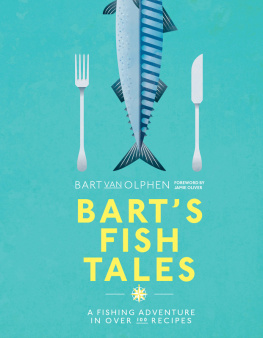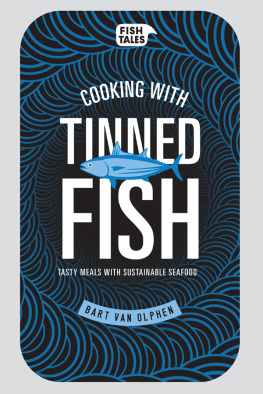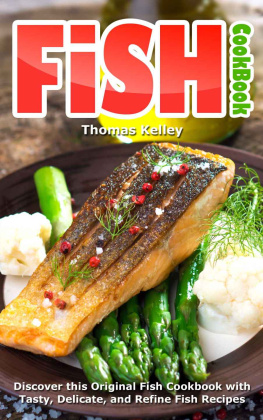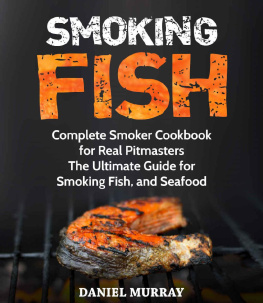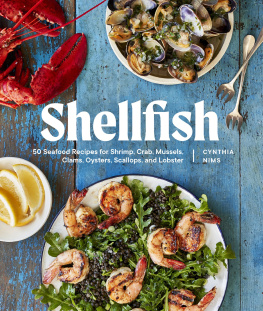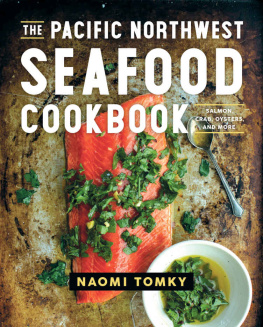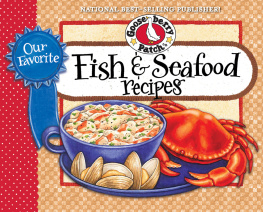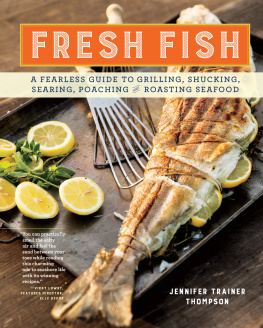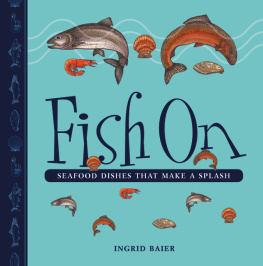Contents
Guide




CONTENTS
HELLO LOVELY PEOPLE, JAMIE OLIVER HERE.
Its my total pleasure to introduce you to the one and only Bart van Olphen and his wonderful cookbook, Barts Fish Tales. This book has been an absolute labour of love for Bart, and has taken him to some of the most hard-to-reach places on the planet. I have never seen a fish book where the author has travelled so widely to tell his personal story and those of the sustainable fishing communities hes visited, which is, at the end of the day, what this book is all about. Of course, its a celebration of how wonderful, healthy and diverse fish can be, but most importantly its a picture of the humongous pressure thats been put on our oceans as a result of overfishing. Not only will Bart show you how to navigate between the fish that are sustainable and those that are endangered, he will get you asking the right questions of yourself and your fishmonger.
I first learnt about Bart back in 2013 when I spotted his 15-second cooking videos on his Instagram feed @BartsFishTales. It was brilliant, and I immediately started telling people about him. It was his passion and enthusiasm for sharing his incredible knowledge of fish and how to cook it that has made me love his work ever since.
The recipes in this book are inspired by many, many countries around the world, and as delicious and beautiful as his food is, its also simple and accessible for the everyday cook. Youll find many of them up on his YouTube channel, also called Barts Fish Tales, and Instagram, which you can use for extra help along the way. Im sure youll love the following pages, with pictures captured by the legend, David Loftus, who Ive had the pleasure of working with for many years. But for now, on to the book. Enjoy!
Big love,
Jamie O xx

MY PASSION FOR FISH
BART VAN OLPHEN
Where did I get this passion for fish? People often ask me but I dont really know exactly when it started. I can certainly remember as a young boy being fascinated by the huge platters of fruits de mer that were brought to the table when we holidayed in Paris each year. Or the time in Belgium when I fell asleep on my mothers lap during lunch. When I awoke and looked up, I saw this incredible monster with huge claws crawling towards me. My father had asked the waiter to bring the lobster and allow it to walk across the table to make sure it was really fresh. What made a very big impression on me was wandering around markets on holiday, and I was particularly taken with the boats moored in the harbour behind the market. And then a little later a fresh fish fried quickly and served with a slice of lemon in a noisy local bar. So simple, yet so delicious.
The fishermans life had long captured my imagination, but it was in the 1990s that I developed a real passion for fish when I had the honour of working in various Michelin-starred restaurants in Paris. I had been dreaming of a French culinary adventure and when the opportunity arose, I soon realised that my preference was for cooking with fish. It was tough working in those traditional Parisian kitchens, but it was during this period that I learned the most as a chef. For me, it was not all about innovative recipes but about classic fish dishes, executed to perfection.
That perfection began with the supplier who arrived each day, usually just after the baker had delivered the bread. He brought freshly caught fish of the finest quality in the French capital they accepted nothing less and always a whole fish, which stared back at you with clear eyes and was so fresh it slipped out of your hand. After that came the gutting, filleting and preparation and, in most cases, the latter was as simple as possible. The most important lesson I took back to Holland with me was that if you want fish at its best, dont do too much to it.
Those are the experiences and memories that inspired me to get involved with fish myself. Back in Amsterdam I opened my own fish shop, which meant finding out more about the story behind fish. I got to know the suppliers and how they worked and became familiar with the industry that provides the fish we eat each day. My romantic vision of small boats and picturesque harbours soon evaporated when I saw the gigantic ships floating factories that trawled for fish and threw much back into the sea. It was totally profit-driven and the wastage was huge. It was the moment, sometime in 2007, that my search for sustainably caught fish began. A quest for fish with a story.
As you may already know, around 80 per cent of the fish stocks in the worlds oceans are being fished to their maximum or beyond. If we continue like this, there will be no fish left to eat by 2048, and that is no exaggeration. In recent decades we have literally plundered the seas and, the careless way we treat the fish we catch makes it worse. Figures show that around 93.4 million tonnes of fish are caught globally each year but thats not the whole total. Over ten million tonnes of fish are thrown overboard for no good reason and many of those are dead by the time they are back in the water. Thats an average of 1.5 kg/3 lb 5 oz of fish per person that is wasted globally, which equals ten fish meals a year.
Fish is the last food that we extract en masse from the wild so its vital to realize that we cant harvest more than nature in this case, the sea provides. Unlike strawberries, for example, where if theres a shortage we can simply plant more, or organic chickens, where any increase in demand can be met by increasing the birds living space and the scale of production. These are things that can be regulated and controlled but its a different matter with fish. Demand is not equal to supply as that depends entirely on what the sea can offer. We have to understand, and with humility, that we are part of a larger ecological cycle. We can enjoy cooking fish and take pleasure in eating it, but, by the same token, we must ensure that future generations can also continue to eat the finest fish. Sustainability is not about rules but about an intrinsic desire and motivation to do things properly.

Should we eat less fish? Of course not, but we should make conscious choices. In the last ten years much has been done to make consumers aware and to increase the supply of sustainably caught fish. Yet the supply is still sadly limited, certainly in restaurants and fish shops.
I love fish. Preparing fish is what I enjoy doing most and theres nothing I like eating more. There are so many varieties of fish and so many ways to prepare them. Marinated, fried, baked in the oven, deep-fried, poached many different methods are described in this book. The flavours are diverse and, best of all, you dont need to do very much to create a delicious fish meal.

